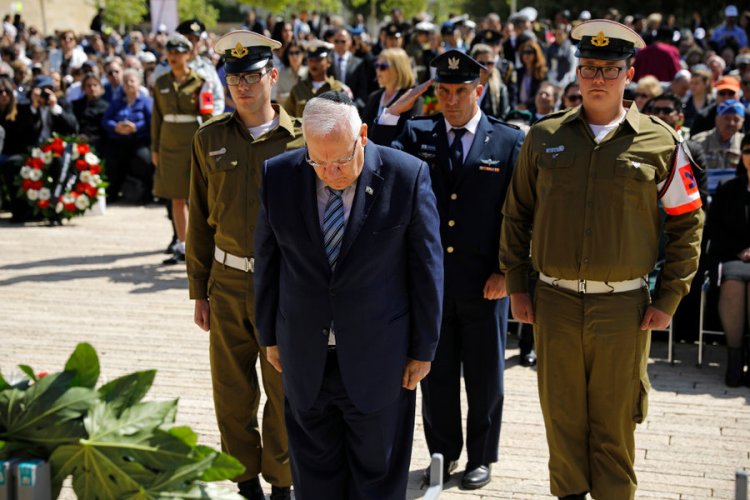 President Reuven Rivlin used this year's Holocaust Remembrance Day to reflect on how Israeli society can apply the Shoah's lessons for peace. |
 President Reuven Rivlin used this year's Holocaust Remembrance Day to reflect on how Israeli society can apply the Shoah's lessons for peace. |
In a Middle East taut with tension between nations, it is rare when a leader engages in deep reflection about his country's identity. Yet Israel's president, Reuven Rivlin, decided to use this year's annual Holocaust Remembrance Day on April 23 to deliver a thoughtful speech on Jewish identity. If his talk can inspire Israel and its neighbors to live in peace someday, perhaps it will be remembered as long as the Holocaust will be.
Mr. Rivlin's current position as president is largely ceremonial, but he has a long history as a hawkish politician with family roots in Jerusalem as far back as 1809. He said the continuing loss of Holocaust survivors makes it crucial for Israeli society to deal with how it relates to the Holocaust and the remembrance of it. He then laid out three approaches, with the third one as his preference.
The first, he said, looks at the Shoah (the Hebrew word used for the Nazi killing of 6 million Jews) as not unique in the history of genocide and violent racism. This "universalist" perspective sees the event as one of many human tragedies. This distorts the anti-Semitism and systemic targeting of Jews, he said, and "denies the right and the obligation of the Jewish people to a history of its own, and to a state of its own."
"The gas chambers were not built 'as a crime against humanity.' They were built for the purpose of annihilating the Jewish people, and specifically that nation," he said. Jews must help prevent genocide in the world but never forget the uniqueness of the Shoah.
The second approach views the Holocaust as a lens on the present and future, always looking to prevent it happening again to the Jews. It sees every threat to Israel as an existential threat and every enemy as a Hitler. This view obscures the richness of Jewish history before the Shoah. "It was not fear that kept us going through 2,000 years of exile, it was our spiritual assets, our shared creativity," he said. That view can also damage the ability of Israel to talk to its critics and develop good relations with other nations.
The third way accepts the need for Jewish solidarity and the goal of preventing genocide but adopts the Jewish value of respecting all men and women, regardless of their religion or race. "Man is beloved, every man, created in God's image," he said. This truth informs a sacred obligation that the Jewish people cannot remain silent to horrors around the world. "Maintaining one's humanity: this is the immense courage bequeathed to us by the victims – and by ... the survivors of the Shoah."
And with that, Israel's president offered up a prayer, asking that the memory of Holocaust victims bind up Jews "in the bond of life."